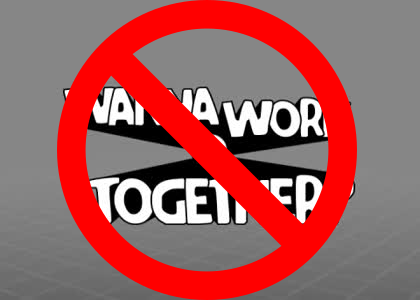Update: It appears the NLI has changed their terms since I posted this. They now license some content with a clean Creative Commons license, and other content with their own license. Oddly, they also claim they have no copyright in the content licensed under their own license. I thought you kinda needed to own the copyright (or some other form of intellectual property) in order to license a work, but I what do I know?
Yet again, I find an organization doesn’t understand the terms of the licenses they purport to use. The latest is the National Library of Ireland (NLI), which released digitized scans of Catholic parish registers this summer. I’m interested in those, because I have Irish Catholic ancestors who appear in them.
On their “about” page, the NLI claims to release the images under the Creative Commons Attribution Non-Commercial 4.0 license:
The Materials are licensed by the National Library of Ireland (the “Licensor”) under the Creative Commons Non-Commercial Attribution 4.0 International License, as supplemented by these terms and conditions (together, these “Terms”).
But wait, there’s some terms of the Creative Commons licenses they appear not to have read:
No additional restrictions — You may not apply legal terms or technological measures that legally restrict others from doing anything the license permits.
The NLI purports to be able to revoke the license as well:
The Licensor reserves the right to vary these terms and conditions at any time. registers.nli.ie will specify the latest date on which these terms and conditions have been amended.
which is in conflict with the following term of the Creative Commons license they link to:
The licensor cannot revoke these freedoms as long as you follow the license terms.
Those things are in conflict. Now, if the NLI does indeed hold the copyright on those registers, they can release them under whatever license they want. Organizations often release works under two or more licenses. For instance, the GNU Free Documentation License or a Creative Commons Share-Alike License. But making it a combination (e.g., “and” instead of “or”) of licenses, or a Creative Commons License plus additional terms makes it no longer a Creative Commons license. It’s something else. Which brings up a whole host of issues:
First, I don’t think they can call it a Creative Commons license any more. Creative Commons does not allow the use of their trademark on non-Creative Commons licenses.
Modification of CC Licenses: To prevent confusion and maintain consistency, you are not allowed to use CREATIVE COMMONS, CC, the CC Logo, or any other Creative Commons trademarks with modified versions of any of our legal tools or Commons deeds, including modifications that do not modify the legal code directly but that further restrict or condition the rights granted by the particular legal tool. These modifications are often contained in a website’s terms of use, and where they are present you may not suggest that you are offering works under a Creative Commons legal tool.
Second, and most important, I cannot publicly incorporate work released under this mish-mash of a license into anything. Why? Because as someone who doesn’t own the copyright on the original, I can’t say “no additional terms” (as is in the license) and “here are the additional terms”. I violate one part or another. I cannot modify the terms, so I cannot leave out the “no additional terms” part for the “here are the additional terms” part. The NLI can do so (though still violating the trademark policy), but I’m automatically in violation as I do not own the copyright. I also cannot offer a non-revocable license where someone else can revoke the license. That’s just nuts.
There may be a slick way to release a derivative work with this license, but that’s going to require a lawyer. That’s what Creative Commons licenses are supposed to avoid. I certainly can’t do it without violating Creative Common’s trademark rights like the National Library of Ireland did.

So, to sum up: what a mess! Don’t do this.
Image Don’t Wanna Work Together composed of an image from Wanna Work Together released under a CC Attribution 2.5 license by Creative Commons and the public domain No Sign published on Wikimedia Commons.